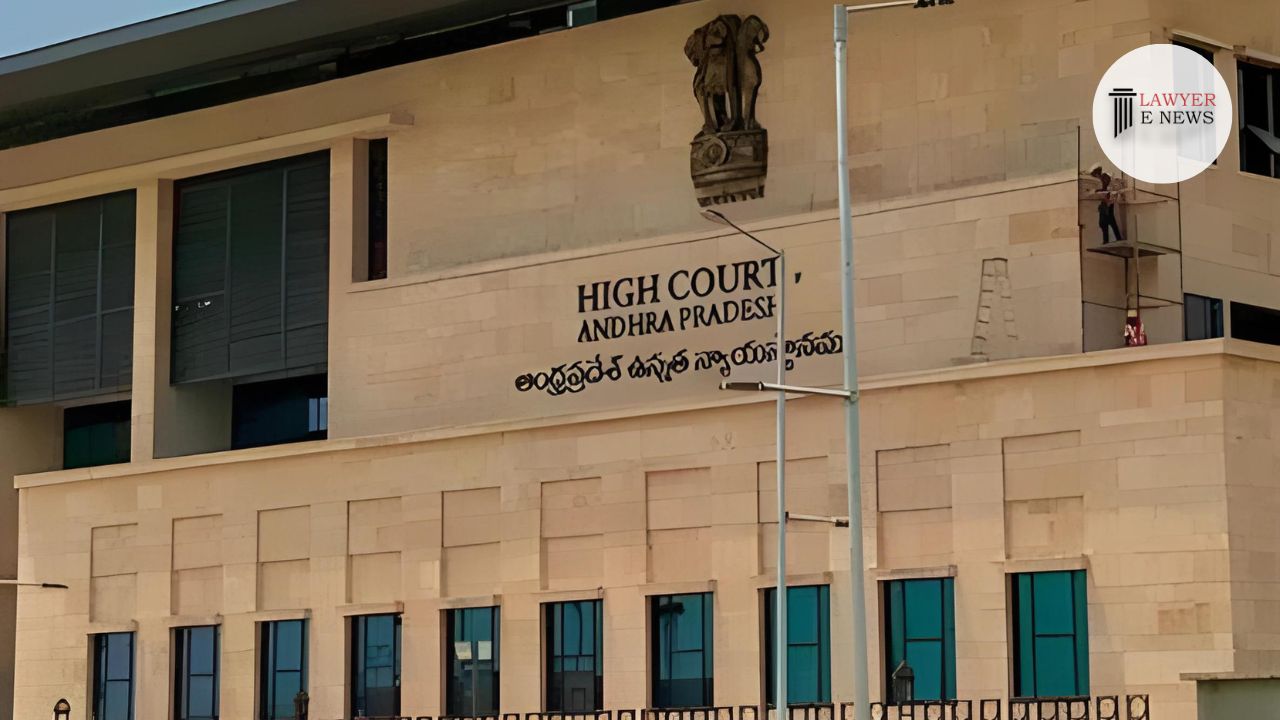-
by Admin
15 February 2026 5:35 AM



High Court of Andhra Pradesh delivered a landmark judgment in the case of Voonna Mohana Rao vs. Kondapalli Rasachakravarthini (Second Appeal No. 1349 of 2012). The court ruled that the civil court lacked jurisdiction to entertain an eviction suit due to the provisions of the Andhra Pradesh Buildings (Lease, Rent, and Eviction) Control (Amendment) Act, 2005. The judgment set aside the previous decrees issued by the lower courts, highlighting the jurisdictional bar under the amended law.
The case originated when the plaintiff, Kondapalli Rasachakravarthini, the owner of a shop, initiated eviction proceedings against the defendant, Voonna Mohana Rao, in O.S.No.187 of 2006 before the Principal Junior Civil Judge, Srikakulam. The plaintiff had leased the shop to the defendant for a pan shop business under a registered lease deed. The lease was for three years, commencing on November 12, 2002, with an initial monthly rent of Rs. 1400, which was subsequently increased to Rs. 1700.
The plaintiff alleged that the defendant had failed to pay the rent from October 2005 and refused to vacate the shop after the lease expired on November 1, 2005. Consequently, the plaintiff filed a suit seeking eviction and recovery of arrears. The trial court decreed the suit, ordering the defendant to vacate the shop and pay arrears of Rs. 8500. The defendant challenged this decision before the District Judge, Srikakulam, who upheld the trial court's judgment. The defendant then filed a second appeal before the High Court of Andhra Pradesh.
The core legal question before the High Court was whether the civil court had the jurisdiction to entertain the eviction suit in light of the amended Section 32(c) of the Andhra Pradesh Buildings (Lease, Rent, and Eviction) Control (Amendment) Act, 2005. This section stipulates that civil courts do not have jurisdiction over eviction suits for buildings where the monthly rent does not exceed Rs. 3500 in municipal corporations and Rs. 2000 in other areas. Given that the rent in this case was Rs. 1700 per month, the defendant contended that the civil court lacked jurisdiction and that the matter should have been dealt with by the Rent Controller under the Rent Control Act.
Justice V. Gopala Krishna Rao, in delivering the judgment, emphasized that the civil courts must be deemed "coram non-judice" in such cases where the rent is below the threshold defined in the amended Section 32(c) of the Act. The court ruled that the civil court proceedings were a "nullity" due to the jurisdictional bar imposed by the amended act.
The court referred to the decision of a Larger Bench in Ramvilas Bajaj vs. Ashok Kumar and Another (2007), which clarified that post-amendment, civil courts lack inherent jurisdiction to pass eviction decrees for premises where the rent falls below the specified amount. The judgment stated:
"After 28-5-2005, such tenants cannot be evicted in execution of a decree in view of the protection conferred on them by Section 10 (1) of Act 15 of 1960."
Justice Rao highlighted that both the trial court and the first appellate court failed to consider the implications of the amended Section 32(c) and erroneously assumed jurisdiction. The court observed:
"The learned trial Judge by ignoring the amended act and also not taking into consideration of Larger Bench decision of this Court decreed the suit filed by the landlady against the tenant and ordered eviction of the defendant."
The court also addressed the argument that since the suit included a claim for arrears of rent, it was maintainable in a civil court. However, Justice Rao dismissed this, stating that the Rent Control Act provides a specific remedy for recovery of arrears of rent under Section 11, making the civil suit unnecessary and non-maintainable.
The High Court, therefore, allowed the second appeal, setting aside the decrees and judgments of both the trial and first appellate courts. The court ruled that the eviction suit was not maintainable in the civil court due to the express jurisdictional bar under Section 32(c) of the Andhra Pradesh Buildings (Lease, Rent, and Eviction) Control (Amendment) Act, 2005. The court observed:
"Both the judgments and decrees of the Courts below are liable to be set aside... the suit filed by the plaintiff is not at all maintainable because jurisdiction of civil Court is ousted in view of the bar under Section 32(c)."
The suit in O.S.No.187 of 2006 was thereby dismissed, and the parties were directed to bear their own costs. This ruling reinforces the legal principle that once the Rent Control Act applies, civil courts have no jurisdiction to entertain eviction suits.
Date of Decision: 13/09/2024
Voonna Mohana Rao vs. Kondapalli Rasachakravarthini
